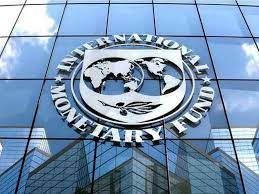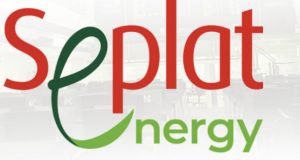Nigeria has begun talks with financial institutions in a bid to restructure its debt even as it has begun considering the loans being offered by the International Monetary Fund (IMF) to ease the food shocks countries are experiencing due to the war in Ukraine and climate change.
This was revealed by Nigeria’s Minister of Finance, Budget and National Planning, Zainab Ahmed on the sidelines of the 2022 IMF/World Bank Annual Meetings holding in Washington DC. Zainab noted that debt restructuring and getting new loans form the IMF were part of the considerations of the Nigerian delegation at the meetings.
The IMF had opened a temporary fund will offer emergency funding to countries facing “acute food insecurity, increased costs of cereal and fertiliser imports, or cereal exports shortfalls” as it estimates that 345 million people will face food insecurity.
Ahmed, revealed that while the decision to take the loan is yet to be reached, the country is already reading the terms and conditions of the Food Shock Window so as to be able draw on the facility that is will help the country that is currently being ravaged by flood.
Commenting on taking loans from the Brenton Woods institution, the minister of finance said “the last drawing we had from the IMF is the second round of SDR that was provided for all the member countries of the IMF.
“The IMF has recently offered a food security package which countries can draw and it is equivalent to about 50 per cent of their SDRs. We have not taken a decision to draw on that, we have to examine what are the requirements to see if it will be safe for us to draw because we don’t want to be drawn into an IMF programme and as it is we are studying the terms and conditions.
“If they work for us, we will now decide to take it because the funds can certainly be useful in terms of adding to our reserves and also in terms of helping us to cope with the challenges that the country is facing especially as the floods that have been happening right now in the country is going to cause more stress on our food system.
“We realize that the floods that are happening are currently destroying crops and therefore the harvest that is expected will be much less and it will mean that more of our people will struggle to be able to afford food.”
Commenting on the loan portfolio of the country which has soared to N42.8 trillion as at June 2022, Ahmed said “it is a fact that Nigeria’s debt have increased over the last three to four years and this increase in debt was occasioned by the different kind of exogenous shocks that the country faced which is not unique to Nigeria.
“The situation we have by the 2023 projection is that, we will be needing to use about 65 per cent of our revenues to service debt. Unfortunately the cost of debt service is rising because of the rising interest rate globally which is resulting also in higher debt service costs.
“But our projection from the debt sustainability analysis is that Nigeria is able to cope with its debt service in 2022 as well as in 2023. We have been engaging the financial institutions to look at the opportunity to restructure our debt to further stretch the debt service period to give us more fiscal relief. Those are some of the things we want to achieve in this meeting.”
With the IMF harping on the need for governments to cut down on spending and focus on supporting the vulnerable, Ahmed said the government in its Medium Term Economic Framework for 2023 to 2025 and the 2023 budget has planned to scaled down subsidy.
“Our projection is that we should be able to exit subsidy by the middle of next year and at the same time we have to be able to provide more support to the poor and the vulnerable in our society especially as vulnerability is increasing and will increase as a result of the climate change that we are beginning to see in the country
“We took all of these into account in designing the MTEF and the budget. We have been very pessimistic in our projections. For example the oil price that we fixed was at $70 and everybody is asking why we are staying at $70 when the prices are averaging $90.
“So that are some of the safeguards that we have put in because we do have production problems but we are beginning to see some uptick in the production numbers and we hope that by the end of the year, we would be able to circle back to the production benchmark as provided for in the budget.
(leadership.ng)
 Newsfront Online …Telling the Public as it is
Newsfront Online …Telling the Public as it is




